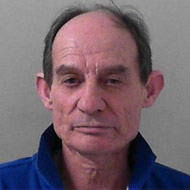Profession warned against bogus ‘vet’

Mr Keniry was sentenced at Taunton Crown Court in October 2017.
The RCVS has issued a warning to the profession not to employ Peter Keniry who was convicted for repeatedly and fraudulently practising as a veterinary surgeon.
Mr Keniry was sentenced at Taunton Crown Court in October 2017 after admitting a charge of fraud and one of practising as a veterinary surgeon without being registered. He was originally handed a three-year prison term but has since been released after serving just over a year.
The RCVS said that given Mr Keniry’s history of repeat offending, practices should be aware of his identity and pay due diligence when hiring new veterinary surgeons.
“Whilst we acknowledge that convincing fraudsters like Mr Keniry can be very difficult to prevent, we would urge veterinary practices to be vigilant,” says RCVS registrar Eleanor Ferguson.
“It is recommended that potential employers contact the RCVS Registration Department to make checks, always interview a potential employee face-to-face, ask to see supporting identity documents, prepare questions which confirm where and when they studied, and obtain references. If they are employed, it is wise to mentor the new member of staff to oversee their performance.”
The RCVS played a proactive role in Mr Keniry’s arrest after its chief investigator Michael Hepper was alerted to the fact he was working at a veterinary practice in Somerset. Mr Hepper said that Keniry was known to the RCVS as it had assisted in previous police investigations into him for similar offences.
Mr Keniry has impersonated legitimate members of the veterinary profession using fraudulent documentation and this is why we have published photographs of him to raise awareness with veterinary practices and to try and stop him being employed in the future”, he said.
Members of the public concerned about the legitimacy of a veterinary surgeon or nurse are encouraged to speak to somebody else in the practice about their concerns or contact the RCVS. The public can also check on the status of veterinary professionals using the RCVS ‘Find a Vet’ tool.



 The latest
The latest